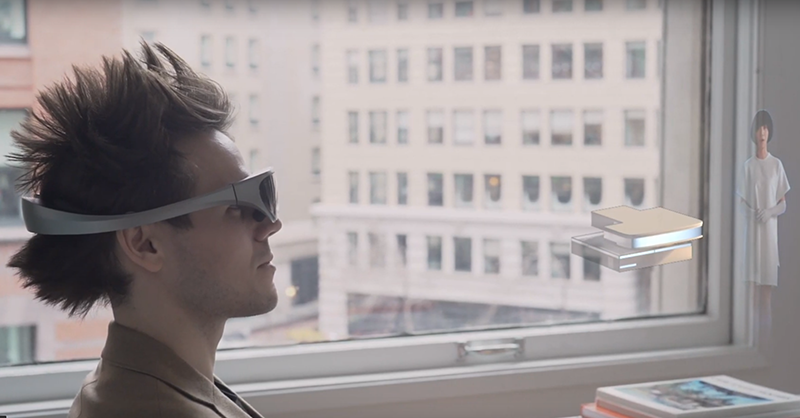Rokid, a China-based startup that develops AR glasses, announced prototype of Project Aurora augmented reality smart glasses at CES 2019 in Las Vegas.
Rokid first launched its smartglasses at the CES last year. Those glasses, called Rokid Glass, looked somewhat like smartglasses. But unlike last years’ glasses, which only projected a display in one eye, the new glasses have two displays for 3D content. The glasses connect to external devices via USB-C. The company is aiming for a low-cost set of glasses that can connect to anything – even a Nintendo Switch.
“With the mission of extending mobile device capabilities and experiences, we’re excited to announce Rokid’s Project Aurora. By leveraging the ever-increasing computing power of mobile devices, Project Aurora supplements these robust experiences by providing a lightweight form factor, industry-leading display quality, and multimodal handsfree input,” said Reynold Wu, Rokid’s head of product and business operations, in a statement.
The company revealed an updated version of the original Rokid glass at the CES 2019. It is 40% smaller, weighs just 120 grams, and features a touchpad controller on the side arm of the device.
The glasses have 1,280×720-pixel resolution and 13 MP RGB camera.
More specs:
- IMU (Inertial Measuring Unit) with three-axis accelerometer, gyroscope, magnetometer
- SLAM (simultaneous localization and mapping)-capable
- 2 microphones
- Built-in stereo speakers
- Bluetooth 4.0, Wi-Fi
CNet’s Scott Stein tried the glasses. He writes:
“The Aurora glasses I tried weren’t in their final form, and can theoretically handle more advanced functions like full-motion 6DOF (6 degrees of freedom, or full motion) tracking and spatial navigation (SLAM). I still have questions.”
Although Rokid disclosed exact price for the glasses, the company said it’ll be around the same as for a midrange phone, and far less than the $1,000-plus price that that most smartglasses have. The company plans to begin selling them to the public this spring.
“Project Aurora will connect consumers to rich, immersive AR content and experiences that were previously unattainable with such a lightweight smartglass,” Wu said. “We’re excited to share how the future looks through it.”













